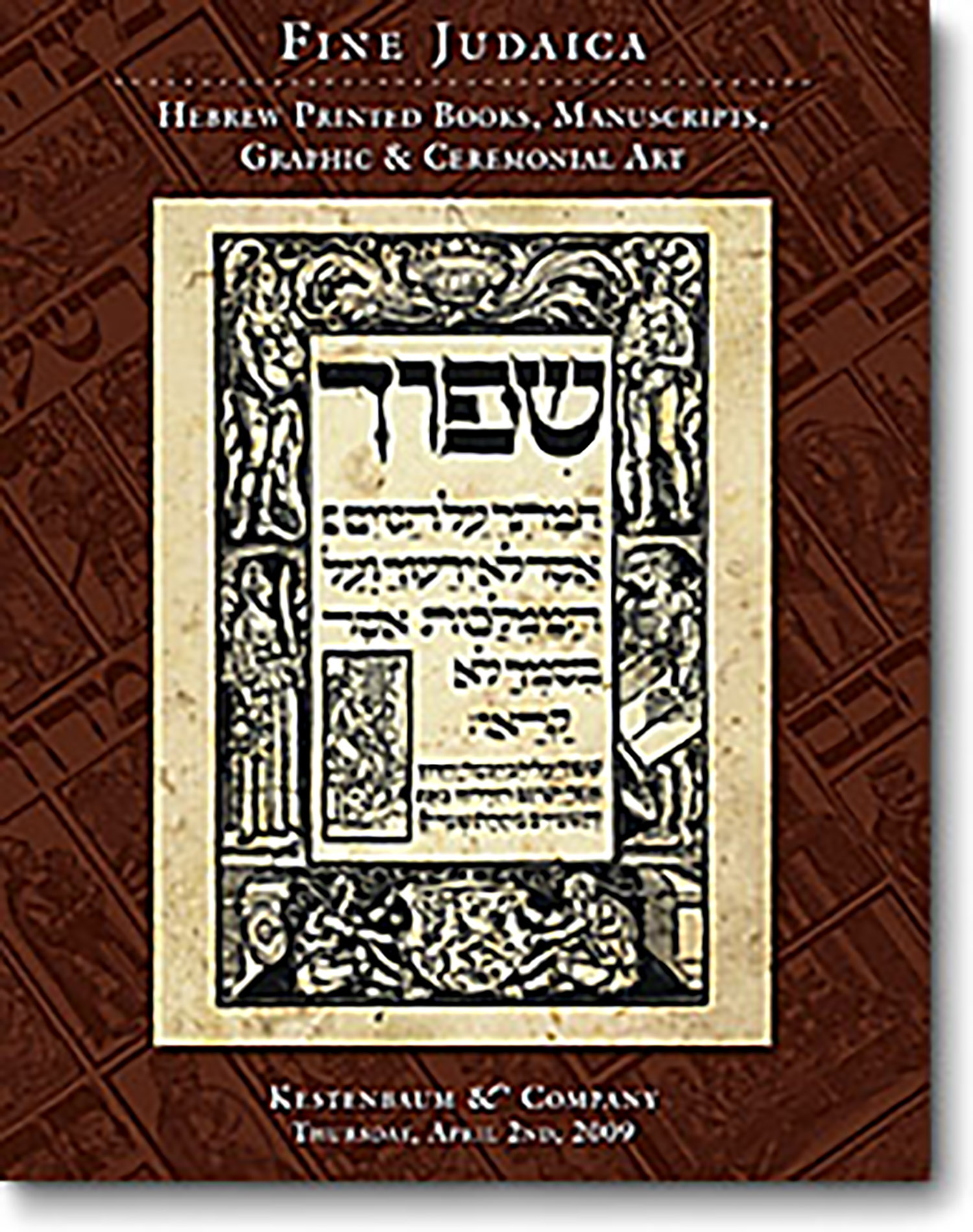Or Ado-nai [“Light of the Lord”: Philosophy]

AUCTION 43 |
Thursday, April 02nd,
2009 at 1:00
Fine Judaica: Hebrew Printed Books, Manuscripts, Graphic & Ceremonial Art
Lot 95
CRESCAS, HASDAI
Or Ado-nai [“Light of the Lord”: Philosophy]
Ferrara: Abraham Usque 1555
Est: $3,000 - $4,000
PRICE REALIZED $3,750
Hasdai Crescas (c. 1340-d.1410/11) was the disciple of the preeminent Iberian rabbinic personality of the day, R. Nissim ben Reuben of Gerona (Ra”N). It has been said that Crescas was the last outstanding original Jewish philosopher of the Middle Ages. His Or Ado-nai is an exceptionally important work of Jewish philosophy and subjected Maimonides’ Aristotelian philosophy to a rigorous critique. It has long been contended that Crescas produced a form of religious determinism, however, a careful reading of Crescas will show that his thoughts on this perennial philosophical problem are much more nuanced and complex.
In the realm of astrophysics, Crescas’ conception of infinite space is strikingly modern. His physics anticipated that of Newton; while parallels have been drawn as well between Crescas on the one hand and Galileo Galilei and Giordano Bruno on the other. (Guttman, p. 259; p. 511, n. 250).
See also H.A. Wolfson Crescas’ Critique of Aristotle (1929); J. Guttman, Philosophies of Judaism (1973), pp. 269-273; Daniel J. Lasker, “Chasdai Crescas” in: Frank and Leaman eds., History of Jewish Philosophy(1997), pp. 399-414; EJ, Vol. V, cols. 1079-85.
The marginalia in this copy contain corrections apparently based upon an early manuscript as this is the first printed edition. The previous owner, a knowledgable bibliophile, inserted four additional leaves from another copy in order to complete the text of this work due to an interesting printer's error: Versos of some leaves were not printed in their proper place and the rectos were repeated
